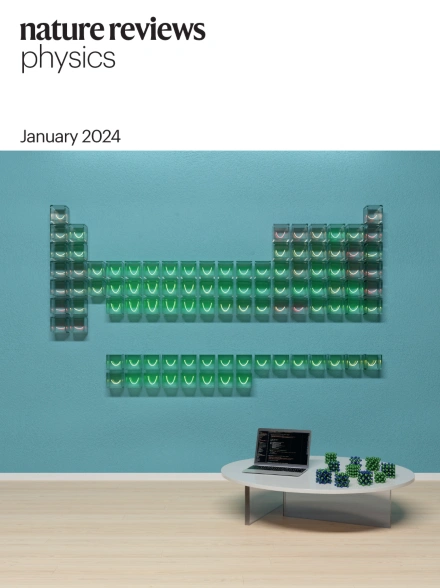Barren plateaus in variational quantum computing
IF 39.5
1区 物理与天体物理
Q1 PHYSICS, APPLIED
引用次数: 0
Abstract
Variational quantum computing offers a flexible computational approach with a broad range of applications. However, a key obstacle to realizing their potential is the barren plateau (BP) phenomenon. When a model exhibits a BP, its parameter optimization landscape becomes exponentially flat and featureless as the problem size increases. Importantly, all the moving pieces of an algorithm — choices of ansatz, initial state, observable, loss function and hardware noise — can lead to BPs if they are ill-suited. As BPs strongly impact on trainability, researchers have dedicated considerable effort to develop theoretical and heuristic methods to understand and mitigate their effects. As a result, the study of BPs has become a thriving area of research, influencing and exchanging ideas with other fields such as quantum optimal control, tensor networks and learning theory. This article provides a review of the current understanding of the BP phenomenon. Barren plateaus are widely considered as one of the main limitations for variational quantum algorithms. This Review summarizes the latest understandings of barren plateaus, indicating its causes, architecture that will suffer from this phenomenon, and discusses strategies that can — and cannot — avoid it.

变分量子计算中的贫瘠高原
变分量子计算提供了一种灵活的计算方法,具有广泛的应用。然而,实现其潜力的关键障碍是贫瘠高原(BP)现象。当模型显示BP时,随着问题规模的增加,其参数优化景观变得指数平坦和无特征。重要的是,算法的所有移动部分——ansatz的选择、初始状态、可观察值、损失函数和硬件噪声——如果不合适,都可能导致bp。由于bp对可训练性的影响很大,研究人员已经投入了相当大的努力来开发理论和启发式方法来理解和减轻它们的影响。因此,bp的研究已经成为一个蓬勃发展的研究领域,与量子最优控制、张量网络和学习理论等其他领域影响和交流思想。本文综述了目前对BP现象的认识。贫瘠的高原被广泛认为是变分量子算法的主要限制之一。本综述总结了对贫瘠高原的最新理解,指出了其原因,将遭受这一现象的建筑,并讨论了可以-和不能-避免它的策略。
本文章由计算机程序翻译,如有差异,请以英文原文为准。
求助全文
约1分钟内获得全文
求助全文
来源期刊

Nature Reviews Physics
Multiple-
CiteScore
47.80
自引率
0.50%
发文量
122
期刊介绍:
Nature Reviews Physics is an online-only reviews journal, part of the Nature Reviews portfolio of journals. It publishes high-quality technical reference, review, and commentary articles in all areas of fundamental and applied physics. The journal offers a range of content types, including Reviews, Perspectives, Roadmaps, Technical Reviews, Expert Recommendations, Comments, Editorials, Research Highlights, Features, and News & Views, which cover significant advances in the field and topical issues. Nature Reviews Physics is published monthly from January 2019 and does not have external, academic editors. Instead, all editorial decisions are made by a dedicated team of full-time professional editors.
 求助内容:
求助内容: 应助结果提醒方式:
应助结果提醒方式:


